
MATERIALS SCIENCE+ENGINEERING:WILEY PLUS
10th Edition
ISBN: 9781119815242
Author: Callister
Publisher: WILEY
expand_more
expand_more
format_list_bulleted
Question
Chapter 17, Problem 29QAP
To determine
To explain:
How oxide coating that forms on silver should be non-protective and yet silver does not oxidize at room temperature and in air:
Expert Solution & Answer
Want to see the full answer?
Check out a sample textbook solution
Students have asked these similar questions
Thermodynamics: Mass and Energy Analysis Of Control Volumes
The state of liquid water is changed from 55 psia and 45◦F to 2000 psia and 120◦F. Determine the change inthe internal energy and enthalpy of water on the basis of the (a) compressed liquid tables, (b) incompressiblesubstance approximation and property tables, and (c) specific-heat model.
Thermodynamics: Mass and Energy Analysis Of Control Volumes
What is the change in enthalpy, in kJ/kg, of oxygen as its temperature changes from 150 to 250◦C? Is thereany difference if the temperature change were from −50 to 100◦C? Does the pressure at the beginning andend of this process have any effect on the enthalpy change?
Determine the global stiffness matrix of the beam shown in Fig. 3. Assume supports at 1 and 3 are rollers and the support at 2 is a pinned support. Indicate the degrees of freedom in all the stiffness matrices. EI is constant, w=60kN/m, L1=1.25m and L2=3.45m
please explain how the code numbers for global matrix are determined in detail
Chapter 17 Solutions
MATERIALS SCIENCE+ENGINEERING:WILEY PLUS
Ch. 17 - Prob. 1QAPCh. 17 - Prob. 2QAPCh. 17 - Prob. 3QAPCh. 17 - Prob. 4QAPCh. 17 - Prob. 10QAPCh. 17 - Prob. 13QAPCh. 17 - Prob. 15QAPCh. 17 - Prob. 16QAPCh. 17 - Prob. 19QAPCh. 17 - Prob. 20QAP
Ch. 17 - Prob. 21QAPCh. 17 - Prob. 22QAPCh. 17 - Prob. 23QAPCh. 17 - Prob. 24QAPCh. 17 - Prob. 25QAPCh. 17 - Prob. 26QAPCh. 17 - Prob. 27QAPCh. 17 - Prob. 29QAPCh. 17 - Prob. 31QAPCh. 17 - Prob. 32QAPCh. 17 - Prob. 1DPCh. 17 - Prob. 2DPCh. 17 - Prob. 3DPCh. 17 - Prob. 1FEQPCh. 17 - Prob. 2FEQPCh. 17 - Prob. 3FEQP
Knowledge Booster
Similar questions
- Thermodynamics: Mass and Energy Analysis Of Control Volumes A 50-L electrical radiator containing heating oil is placed in a 50-m3 room. Both the room and the oil in theradiator are initially at 5◦C. The radiator with a rating of 3 kW is now turned on. At the same time, heatis lost from the room at an average rate of 0.3 kJ/s. After some time, the average temperature is measuredto be 20◦C for the air in the room, and 60◦C for the oil in the radiator. Taking the density and the specificheat of the oil to be 950 kg/m3 and 2.2 kJ/(kg◦C), respectively, determine how long the heater is kept on.Assume the room is well-sealed so that there are no air leaks.arrow_forward= 20 kips = 20 kips B w₁ = 2 kips/ft 20" 12'- 7760 12" 6"arrow_forward= 20 kips = 20 kips B w₁ = 2 kips/ft 20" 12'- 7760 12" 6"arrow_forward
- Calculate ALL nodal displacements and ALL the member forces in the truss. Please use the ID's noted in the truss diagram and draw relevant FBD'sarrow_forwardProblem 3 For the beam and loading shown, consider section n-n and determine (a) the largest shearing stress in that section, (b) the shearing stress at point a. 1ft 15 kips 20 kips 15 kips AITT in 1 0.6 in. -10 in. 1 in. 0.375 in.- 2 ft 2ft 2 ft 2ft 10 in. 1 0.6 in.arrow_forward4. An edge e can be (x) always full, (y) sometimes full,(z) never full; it can be (x') always crossing, (y') sometimes crossing, (z') never crossing. So there are nine possible combinations: (xx') always full and always crossing, (xy) always full and sometimes crossing, and so on. Or are there? Maybe some possibilities are impossible. Let's draw a table: The edge e is: always full sometimes full never full Possible Possible always crossing f:2 or or S e: 1 impossible? impossible? Possible Possible sometimes crossing f:1 or or 8 e: 1 impossible? impossible? Possible Possible Possible never crossing or or or impossible? impossible? impossible? Take a piece of paper, complete the 3 × 3 table below by either finding an example illustrating that the combination is possible or by concluding that it is impossible. To do so, you will need the Max Flow Min Cut Theorem plus a bit of your own thinking. Once you have completed the table, select which of the following statements are true: There is…arrow_forward
- Structural analysis qarrow_forwardIn the figure, all loads are factored, and the uniform load includes self-weight. Use #3stirrups. fc′ = 4 ksi, and fy = 75 ksi.(a) What stirrup spacing is required at section A?(b) How will this spacing change at section B?(c) Indicate the region of the beam where stirrups are not required.arrow_forwarda) Calculate the values of v and i. + 803 1A Va 82 b) Determine the power dissipated in each resistor. 1A Va (a) + I 50 V 0.2 S (b) + D + 1 Α υ€ 20 Ω 50 V 250 ΩΣ ia (c) (d) Copyright ©2015 Pearson Education, All Rights Reservedarrow_forward
- Exercise 3-12: Find the Thévenin equivalent of the circuit to the left of terminals (a, b) in Fig. E3.12, and then determine the current I. 502 502 0.6 Ω 20 V | + <302 Ω ΣΙΩ b 2025 Ω 15A Figure E3.12arrow_forward2. Consider following feedback system. r(t) e(t) y(t) K G(s) 1 where G(S) = s²+as+b In above, K, a and b are constants. Select the values of K, a and b in a way so that (i) (ii) (iii) the closed loop system is stable, steady-state error of the closed-loop system for step input is 0.2, the closed-loop response has 20% overshoot and 2 seconds as settling time.arrow_forward4. Answer the following questions. Take help from ChatGPT to answer these questions (if you need). But write the answers briefly using your own words with no more than two sentences, and make sure you check whether ChatGPT is giving you the appropriate answers in the context of class. a) What is the advantage of the PI controller over the proportional controller? b) What is the advantage of the PD controller over a proportional controller? c) In the presence of noise, what problem do we face implementing the derivate part of the PID (or PD) controller? To address this, what do we usually use? d) What are the forms of lead compensator and lag compensator? How do these two types of compensators differ?arrow_forward
arrow_back_ios
SEE MORE QUESTIONS
arrow_forward_ios
Recommended textbooks for you
 MATLAB: An Introduction with ApplicationsEngineeringISBN:9781119256830Author:Amos GilatPublisher:John Wiley & Sons Inc
MATLAB: An Introduction with ApplicationsEngineeringISBN:9781119256830Author:Amos GilatPublisher:John Wiley & Sons Inc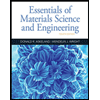 Essentials Of Materials Science And EngineeringEngineeringISBN:9781337385497Author:WRIGHT, Wendelin J.Publisher:Cengage,
Essentials Of Materials Science And EngineeringEngineeringISBN:9781337385497Author:WRIGHT, Wendelin J.Publisher:Cengage,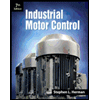 Industrial Motor ControlEngineeringISBN:9781133691808Author:Stephen HermanPublisher:Cengage Learning
Industrial Motor ControlEngineeringISBN:9781133691808Author:Stephen HermanPublisher:Cengage Learning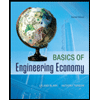 Basics Of Engineering EconomyEngineeringISBN:9780073376356Author:Leland Blank, Anthony TarquinPublisher:MCGRAW-HILL HIGHER EDUCATION
Basics Of Engineering EconomyEngineeringISBN:9780073376356Author:Leland Blank, Anthony TarquinPublisher:MCGRAW-HILL HIGHER EDUCATION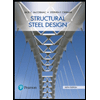 Structural Steel Design (6th Edition)EngineeringISBN:9780134589657Author:Jack C. McCormac, Stephen F. CsernakPublisher:PEARSON
Structural Steel Design (6th Edition)EngineeringISBN:9780134589657Author:Jack C. McCormac, Stephen F. CsernakPublisher:PEARSON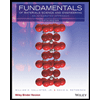 Fundamentals of Materials Science and Engineering...EngineeringISBN:9781119175483Author:William D. Callister Jr., David G. RethwischPublisher:WILEY
Fundamentals of Materials Science and Engineering...EngineeringISBN:9781119175483Author:William D. Callister Jr., David G. RethwischPublisher:WILEY

MATLAB: An Introduction with Applications
Engineering
ISBN:9781119256830
Author:Amos Gilat
Publisher:John Wiley & Sons Inc

Essentials Of Materials Science And Engineering
Engineering
ISBN:9781337385497
Author:WRIGHT, Wendelin J.
Publisher:Cengage,

Industrial Motor Control
Engineering
ISBN:9781133691808
Author:Stephen Herman
Publisher:Cengage Learning

Basics Of Engineering Economy
Engineering
ISBN:9780073376356
Author:Leland Blank, Anthony Tarquin
Publisher:MCGRAW-HILL HIGHER EDUCATION

Structural Steel Design (6th Edition)
Engineering
ISBN:9780134589657
Author:Jack C. McCormac, Stephen F. Csernak
Publisher:PEARSON

Fundamentals of Materials Science and Engineering...
Engineering
ISBN:9781119175483
Author:William D. Callister Jr., David G. Rethwisch
Publisher:WILEY